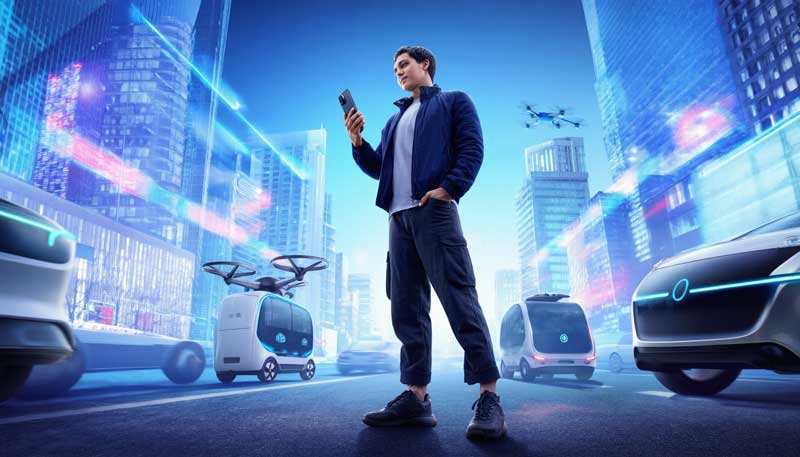Travel ➢ Travel Technology Trends
5 Travel Technology Trends That Will Transform Your Adventures in 2025

Travel technology is evolving at an unprecedented pace, transforming how we plan, experience, and remember our adventures. In 2025, innovative technologies are making travel safer, more personalized, and more immersive while solving age-old challenges that have frustrated travelers for decades.
These emerging trends go beyond simple convenience—they're fundamentally changing what's possible when exploring the world. From real-time language translation to predictive travel assistance, technology is breaking down barriers and opening up new possibilities for adventurous spirits everywhere.
1. AI-Powered Personal Travel Assistants
Advanced AI travel companions now provide personalized recommendations, real-time problem solving, and predictive assistance throughout your journey. These systems learn your preferences, budget constraints, and travel style to offer increasingly relevant suggestions for accommodations, activities, and dining.
Modern travel assistants can automatically rebook flights during disruptions, suggest alternative routes when delays occur, and even negotiate better rates at hotels based on current availability and your travel history. They work proactively to solve problems before they impact your trip.
Voice-activated travel assistants integrated into smartphones and wearables provide hands-free access to critical information, translation services, and emergency assistance—particularly valuable when navigating unfamiliar environments or dealing with language barriers.
2. Real-Time Universal Translation Technology
Language barriers are rapidly disappearing thanks to advanced translation devices and apps that provide instant, context-aware translation in over 100 languages. These systems now understand cultural nuances, regional dialects, and specialized terminology for activities like dining, shopping, or seeking medical assistance.
Smart translation earbuds and wearable devices enable natural conversations with locals, while camera-based translation instantly converts text from signs, menus, and documents. Some systems even preserve the original formatting and design while overlaying translations.
Offline translation capabilities ensure you maintain communication abilities even in remote areas without internet connectivity, making solo travel and off-the-beaten-path exploration more accessible and safe.
3. Enhanced Safety and Security Systems
Smart safety technology now provides comprehensive protection through GPS tracking, emergency communication, and predictive risk assessment. Advanced systems can detect dangerous situations and automatically alert emergency contacts or local authorities with precise location information.
Personal safety devices integrate multiple sensors to detect falls, medical emergencies, or security threats while providing discrete panic buttons and two-way communication with emergency services. These systems work globally with automatic carrier switching for optimal connectivity.
Smart luggage and anti-theft devices use combination locks, GPS tracking, and smartphone alerts to prevent loss and theft while providing real-time location monitoring throughout your journey.
4. Immersive Augmented Reality Experiences
AR technology is transforming how we explore and understand new destinations. Smart glasses and smartphone apps overlay historical information, navigation directions, and cultural context onto real-world environments, creating rich, educational experiences without constant screen interaction.
Museum and landmark visits become interactive experiences with AR providing detailed explanations, virtual reconstructions of historical sites, and multilingual guided tours that adapt to your interests and available time.
Navigation systems using AR provide intuitive, real-world directions by overlaying arrows and information directly onto your field of view, making it easier to navigate complex transit systems and unfamiliar streets.
5. Sustainable Travel Optimization
Environmental consciousness is driving innovation in sustainable travel technology. Smart systems now calculate and minimize the carbon footprint of travel plans while suggesting eco-friendly alternatives that don't compromise the travel experience.
Carbon tracking apps monitor your travel emissions in real-time and suggest offset programs or alternative transportation methods. Some systems gamify sustainable travel choices, rewarding eco-friendly decisions with points or discounts for future trips.
Smart accommodation platforms prioritize environmentally responsible hotels and experiences while providing transparency about sustainability practices, helping travelers make informed choices that align with their values.
Integration and Seamless Connectivity
The most significant trend is the integration of all these technologies into cohesive travel ecosystems. Your travel assistant coordinates with translation services, safety systems, and AR applications to provide seamless experiences that feel natural rather than tech-heavy.
Cloud-based travel profiles sync across all devices and services, ensuring your preferences, important documents, and emergency information are always accessible regardless of which device you're using or where you are in the world.
Making Advanced Travel Tech Accessible
Perhaps most importantly, these technologies are becoming more affordable and user-friendly. You don't need expensive gear or technical expertise to benefit from advanced travel technology—many innovations work through standard smartphones with downloadable apps.
The focus has shifted from impressive features to practical utility, ensuring that technology enhances rather than complicates the travel experience. The best travel tech solutions are those that work quietly in the background, solving problems and providing assistance without requiring constant attention.
The Future of Travel Exploration
As these trends continue to evolve throughout 2025, the most successful travel technologies will be those that preserve the wonder and spontaneity of exploration while providing security, convenience, and deeper cultural understanding.
The ultimate goal isn't to digitize travel, but to remove barriers that prevent people from exploring the world confidently and sustainably. Technology should enhance human connections and cultural exchange rather than replace them.
Share this article:
React to this article: